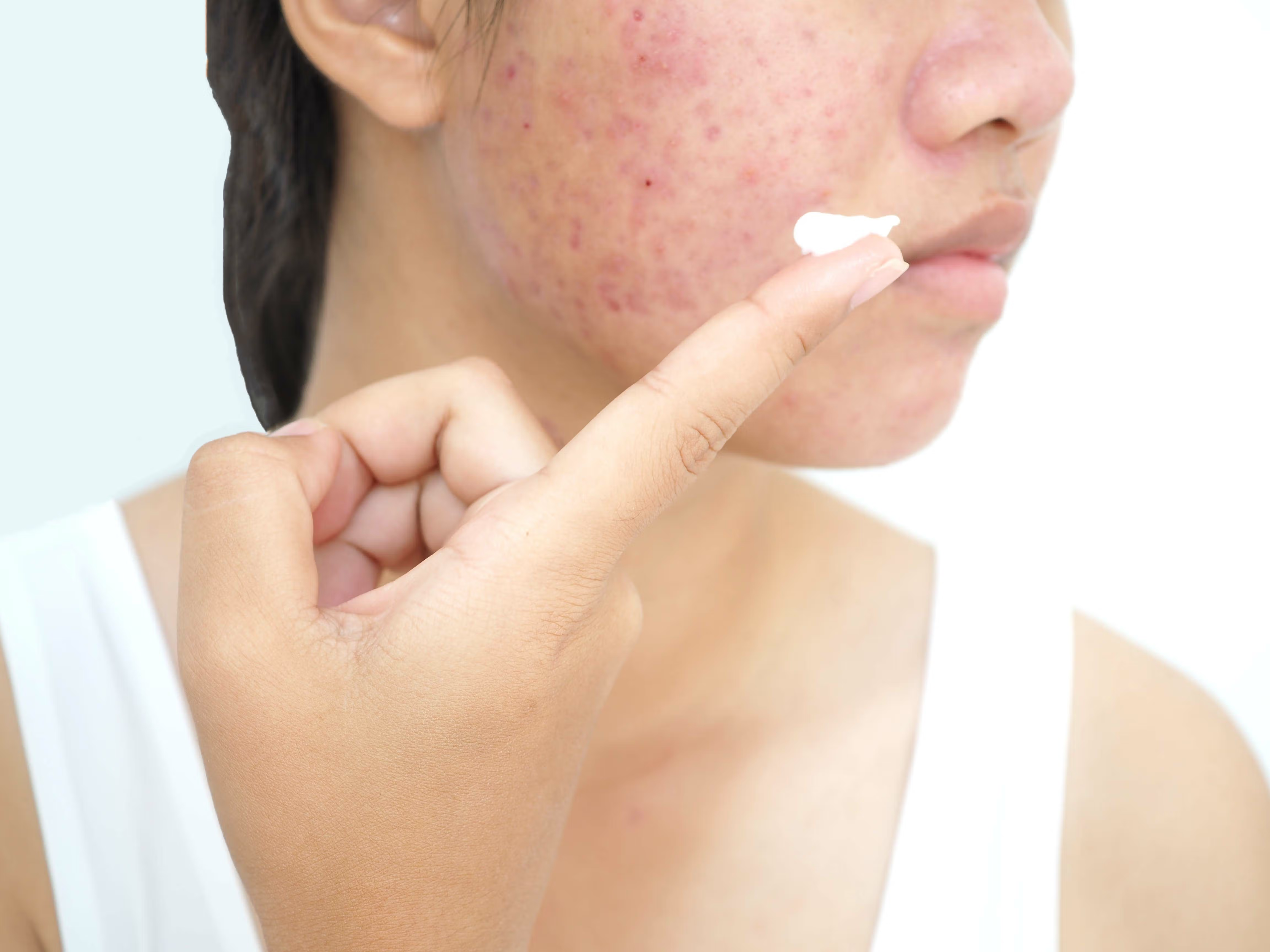- Case-Based Roundtable
- General Dermatology
- Eczema
- Chronic Hand Eczema
- Alopecia
- Aesthetics
- Vitiligo
- COVID-19
- Actinic Keratosis
- Precision Medicine and Biologics
- Rare Disease
- Wound Care
- Rosacea
- Psoriasis
- Psoriatic Arthritis
- Atopic Dermatitis
- Melasma
- NP and PA
- Skin Cancer
- Hidradenitis Suppurativa
- Drug Watch
- Pigmentary Disorders
- Acne
- Pediatric Dermatology
- Practice Management
- Prurigo Nodularis
- Buy-and-Bill
News
Video
Balancing Adolescent Acne Treatment and Well-being
Key Takeaways
- Acne significantly affects adolescents' mental health, with high rates of depression, anxiety, and suicidality, worsened by the COVID-19 pandemic.
- Untreated acne poses greater psychological risks than isotretinoin's psychiatric effects, necessitating a holistic care approach.
According to Silverberg, emotional resilience, social support, and purposeful activities help adolescents cope with acne-related stress.
A common skin condition among patients of all ages, acne can significantly impact adolescents' mental health during an especially formative time in their lives. In an interview with Dermatology Times at the 2025 Masters of Pediatric Dermatology (MOPD) Conference, Nanette Silverberg, MD, chief of pediatric dermatology at Mount Sinai Health Systems, discussed the psychological effects of acne and evolving treatment strategies.
The Psychological Burden of Acne
Silverberg highlighted the strong connection between acne and mental health issues: “Depression rates are as high as 20 to 25%, anxiety affects a third of patients, and suicidality is around 12%.” She noted that these numbers are even higher in some regions, such as India and Saudi Arabia, where over 50% of acne sufferers report mental health struggles.
Silverberg says the COVID-19 pandemic has exacerbated these issues, affecting adolescents who were in critical developmental years. “Now those [who were] 10 to 12 [during the pandemic] are hitting that mid adolescence where they have a lot of acne. It’s affecting them in a different way,” she explained, emphasizing the need for a proactive approach.
Balancing Treatment and Psychological Well-being
While concerns about isotretinoin’s psychiatric effects persist, Silverberg stressed that untreated acne poses a greater risk: “If we don’t treat the acne, we’re probably at higher risk of the patient having prolonged psychological concerns.” She advocates for interdisciplinary care involving dermatologists, psychiatrists, and therapists to support patients holistically.
Building Emotional Resilience
Silverberg emphasized the importance of fostering emotional resilience in acne patients through social support, purposeful activities, and self-care. “We talk to them about how they're going to look better in a certain time period. Sometimes we talk about events. What do you want to be clear for? Is it for your graduation pictures? Is it for prom? Is it for your sister's wedding?” she said.
Advances in Acne Treatment
Topical therapies, particularly retinoids, remain a cornerstone of treatment. Silverberg also addressed concerns about benzoyl peroxide breakdown products and emphasized the importance of selecting the right combination treatments for optimal results.
Special Considerations and Social Media’s Role
Silverberg noted transgender youth and individuals with skin of color face unique acne challenges, requiring tailored treatment approaches. Additionally, social media influences acne perceptions, both positively and negatively, making education and guidance essential.
Conclusion
In her presentation at MOPD, Silverberg emphasized that acne management requires a holistic approach that includes effective treatment, mental health support, and resilience-building strategies. Her insights underscore the need for clinicians to address both the physical and emotional aspects of acne care.






